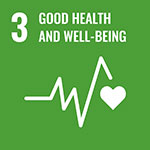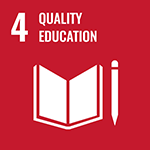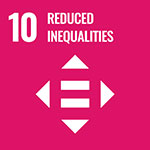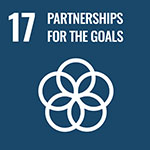The Aalborg Portland Holding Group has a long-standing tradition of social and environmental responsibility in the countries where it operates. Work is ongoing on several projects that support society’s sustainability goals.
The Group is committed to contributing significantly to achieving society’s climate goals and therefore invests substantial sums in continuing environmental improvements.
Society’s heightened awareness of sustainability is expressed in a growing interest and demand for products manufactured with sustainability in mind. The Group’s long-standing work in this area gives the company’s products a prominent position in customer deliberations.
The Group has an effective development management structure aimed at delivering a stream of sustainable processes and products and has targeted a 30% reduction in CO2 emissions against 1990 to be achieved by 2030. For the next three years, approx. EUR 100m has been allocated for investment projects intended to strengthen sustainability.
Focal areas going forward include the following:
- Introduction and implementation of FUTURECEMTM, the Group’s globally patented breakthrough technology which enables cement to be manufactured with 30% less CO2 emission.
- Development of new, advanced and more sustainable products based on white cement.
- New investments in Denmark aimed at increasing the use of alternative fuel in the production of grey cement from 53% today to 80%.
- Parallel focus on decreasing the use of fossil fuel in the production of white cement.
- Investment in an 8 MW capacity wind farm at the Aalborg cement plant, Denmark, enabling 90% of electricity consumption to be sourced from renewable energy.
New investments in using heat from Danish cement production for supply as district heating to the city of Aalborg, meeting the needs of approx. 50,000 households.
New investments in Belgium aimed at increasing the use of alternative fuel and thereby decreasing the use of fossil fuel.
Study and assessment are currently also taking place into the possibilities of using a broader spectrum of energy sources as well as collecting and storing CO2 arising from the production processes.
The Aalborg Portland Holding Group has set 25 sustainability targets covering the priority areas for the Group. Such targets are related to the Group’s efforts to adopt all necessary measures and the most innovative technological solutions to: minimise the impact of its business on the environment; create a healthy, safe and inclusive work environment; respect human rights and create a constructive and transparent relationship with local communities and business partners.
The 25 sustainability targets are aligned with the following Sustainable Development Goals (SDGs) set by the United Nations General Assembly.

Safety comes first. Within 2030, all our operating companies related to cement production, concrete production and waste management will operate with a certified health and safety management system (i.e. ISO 45001). We analyze the causes of any accidents or near misses and we share the lessons learned across the Group. In 2019, no fatalities involved our employees.
In addition, in 2019, the Group performed an internal survey “Your Voice” to verify the level of engagement of personnel across the Group. More than 80% of employees have been involved and according to the results of the survey, specific action plans have been defined at global and local levels.

During 2018 Cementir Academy was launched, a training hub that aims to develop and enhance the technical, behavioural and managerial skills of all our employees. In 2019, more than 50,000 hours of training were supplied, almost 17 hours of training per capita.
Since 1998 Cementir, through its subsidiary Çimentaş, has provided financial support to the incorporation and the development of the Işıkkent Educational Campus, an important school in the city of Izmir (Turkey) where education is provided at all levels from nursery school to high school. In 2019, the school counted 770 students.

We consider inclusion and diversity as fundamental values of our culture and of our human and professional growth, an enrichment necessary for sustainable development.
We aim to promote diversity also within the Board of Directors.
In 2019, 23% of personnel involved in the Group Talent Program and the 16% of successors for key position (the double comparing 2018) was female.

We recycle water used in the production processes and collect rainwater in specific dedicated areas of our plants. In 2019, we recycled 65% of water used in the production of cement, concrete and aggregates compared to 63% in 2018 and 61% in 2017.

In our cement production process, we fully exploit the potential renewable energy. At our Aalborg plant we provide district heating to the local municipality by recovering the heat generated in the kiln.
In 2019, Aalborg supplied heat corresponding to the needs of around 36,000 households and we are investing to provide such district heating to 50,000 households, around half of Aalborg city population. Furthermore, we are planning to use the cold water from our chalk reserves to provide district cooling for Aalborg's University Hospital.
In Belgium and Turkey, we are investing to use waste heat recovery to generate electricity, whereas in Denmark we are designing an 8 MW wind farm which will provide renewable energy to the plant.

We create economic growth and jobs for local communities.
During 2020 - 2022, we have planned investments of EUR 100 million in sustainability and digitalization including:
- the construction of an 8 MW wind farm for the needs of the Aalborg plant;
- heat recovery in our plants in Denmark and Turkey;
- the expansion of district heating to 50,000 families in Aalborg;
- the increase in the use of alternative fuels from the current 40% to 80% in Belgium;
- the digitalization of the manufacturing processes, maintenance, inventory management and spare parts at all our main plants.

CO2 footprint reduction across the entire value chain through:
- new cement types based on FUTURECEMTM technology, developed and patented by Cementir Holding, which enables a reduction of clinker content in cement and consequently a 30% reduction in CO2 emissions;
- innovative applications and products, including Ultra-High-Performance Concrete (UHPC), Glass-Fibre Reinforced Concrete (GFRC), magnetic concrete and 3D printing.

Respect for human rights is a basic tenant of our beliefs and is consistent with its values and goals to be a more economically, socially and environmentally sustainable Group. The Human Rights Policy aims at supporting and guiding the management and employees to achieve these goals.
We endorse the principles set out in the Universal Declaration of Human Rights and the International Labour Organization (ILO) based on respect for the dignity of the individual without distinction of any kind. As part of the Group’s initiative related to Human Rights, in 2019, the Internal Audit established a Human Rights self-assessment checklist as part of the standard internal audit process.

In waste we see resources: we promote a circular economy
- we cover 20% of thermal energy needs using alternative fuels instead of non-renewable fossil fuels;
- we recycle around 12% of all raw materials used in the production process;
- we transform over 395,000 tons of industrial and urban waste;
- we produce 105,000 tons of waste-derived fuel (RDF) and recovered solid fuel (SRF) in our waste treatment plants.

We will reduce CO2 emissions per tonne of cement by bout 30% by 2030.
The target will be achieved through increased use of alternative fuels (77% of the total to produce grey cement within 2030) and renewable resources, reduction of thermal consumption and the clinker ratio of cements. A pivotal role in CO2 reduction will be played by FUTURECEMTM - our proprietary technology internally developed and worldwide patented - which allows a reduction of clinker content in cement.

We follow programs of rehabilitation and recovery of biodiversity of all the sites planned for closure. In Belgium, the Life in Quarries project was launched, a program funded by the European Commission. The objective of the Life in Quarries project is to develop a methodology that allows to optimize the capacity to host the biodiversity of quarries in Belgium.

Supporting Denmark in delivering a 70% reduction in greenhouse gases by 2030.
Through Aalborg Portland, the Group is involved in the most ambitious CO2 reduction project sponsored by a government. The Managing Director of Aalborg Portland is leading the technical group that will provide to the Danish government the technical forecast of all potential CO2 reductions achievable by energy intensive industry in Denmark and will define the prerequisites (policy, research, innovation, subsidies, etc.) for such reductions